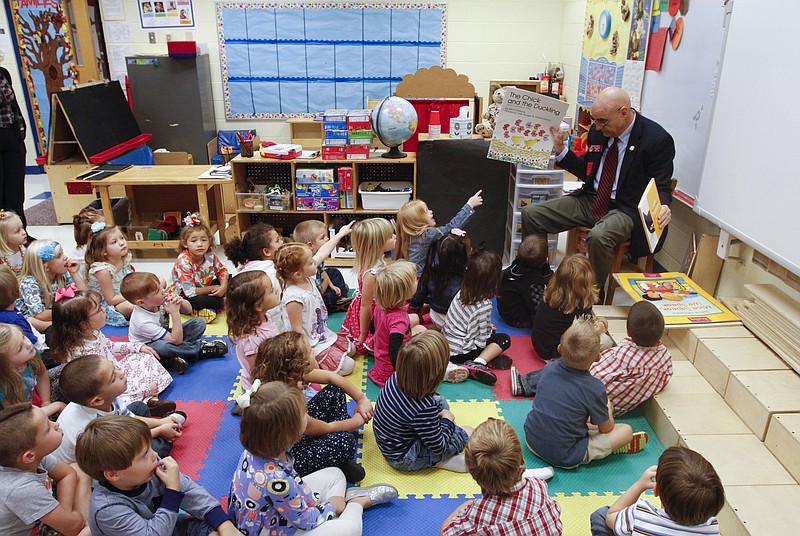NASHVILLE -- Children from low-income families benefit signicantly at first from Tennessee's pre-kindergarden program but the gains soon begin fading, according to the latest installment of Vanderbilt University's landmark, five-year study of Tennessee pre-K's effectiveness.
In fact, one of the Vanderbilt Peabody College's investigators says he and fellow researchers were astonished to discover this: not only did students in a control group who had skipped pre-K quickly begin catching up to pre-K students within a year or two, but pre-K students themselves fell behind their peers by the end of third grade.
"We're pretty stunned looking at these data and have a lot of questions about what might be going on in the later grades that doesn't seem to be maintaining, if not accelerating, the positive gains the VPK attendees made in pre-K," said co-chief investigator Mark Lipsey, director of the Peabody Research Institute, in a statement.
Among other things, the study raises questions about the consistency and quality of pre-K programs in Tennessee's 95 counties, researchers said. The Tennessee Voluntary Pre-K Program was introduced in 1996 and underwent a huge expansion in 2005 to serve 18,000 students in 935 classrooms in all 95 counties.
"TN-VPK was rolled out very quickly and not all pre-K classrooms in Tennessee are alike," said Dale Farran, co-principal investigator and the Antonio M. and Anita S. Gotto Professor of Teaching and Learning at Peabody. "What might you get from the same pre-K program if you had a common vision and could push the quality up? These are among the questions we are raising in light of the findings of our study."
Lipsey noted that some pre-K classrooms produced "notably stronger outcomes for children. One question we have is whether those classrooms can provide models that teachers across the state can emulate to help improve the benefits for the participating children."
The study is billed as a first-of-its-kind randomized control trial of a scaled-up state-funded pre-K program. Tennessee's $85 million-plus program targets the ever-growing population of "at-risk" preschoolers.
Vanderbilt researchers issued several caveats on the study's results. They also say pre-K has potential but is "not a panacea" for all problems facing struggling children from poor backgrounds. While challenges are big, the potential of pre-K to produce such positive impacts cited by proponents "cannot be entirely dismissed on the basis of this study," they say.
Things to consider include recognizing that high quality pre-K could be a "vital part of the equation," but it is "unlikely to be sufficient by itself at even the highest quality levels."
They raise the issue that grade K-3 programs may be in effect be dropping the ball because they're apparently not integrating pre-K very well into those grades. More attention may be needed to the challenge of supporting linked, cumulative learning throughout this period, researchers said.
"Pre-K is a good start, but without a more coherent vision and consistent implementation of that vision, we cannot realistically expect dramatic effects," said Farran. "Too much has been promised from one year of preschool intervention without the attention needed to the quality of experiences children have and what happens to them in K-12. There is much work to be done."
Vanderbilt's previous work has already given fodder to conservative state lawmakers who have long been public pre-kindergarden programs. The latest installment will likely increase the political pressure which has already stalled efforts to expand pre-K in Tennessee.
Republican Gov. Bill Haslam told reporters earlier today that he had just started looking at the study's latest installment. While reserving room to "dig deeper," the governor said, "I think our challenge has always been this. That it hasn't always been is pre-K good or bad. My sense is that quality pre-K with good followup can have an impact.
"But," Haslam added, "we have to balance that against all the other things that we could spend money on. [Pre-K] versus paying existing K-12 teachers more, investing in more technology. And you do that based on the results of whatever that investment be."
The governor said his administration will "take this as data to evaluated it [pre-K's] effectiveness versus other things we might do. It's been no secret; I've said K-12 is an area that I would like for us to put more dollars into. We have to do that within context of the budget and in the context of where it will get the best results."

